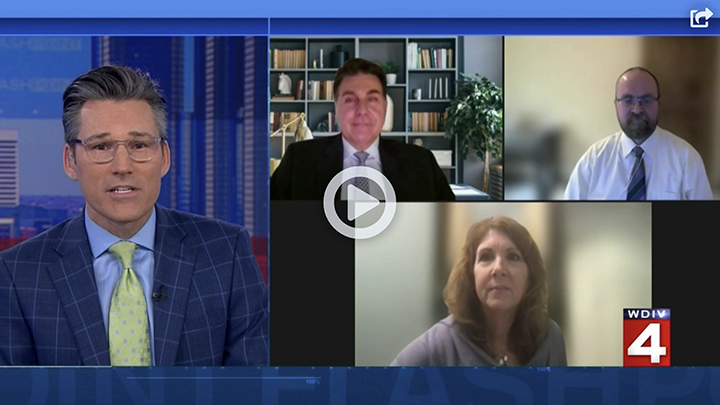
3707 W. Maple Rd
Suite 201
Bloomfield Hills, MI
48301-3212
Phone: 248-644-2701
ext 3336
Email:
prudentecon@yahoo.com
Crossroads
There are many myths throughout human history that often are translated into policies and practices, sometimes for centuries. Two current beliefs that are accepted as fact: there is a trade deficit and foreigners pay all tariffs. This essay proves otherwise.https://catholicjournal.us/2025/09/30/crossroads/
Tariffs Won’t Bring Back Manufacturing. What They Will do to Stocks.
Tariffs are due to be imposed today. The Administration is waiting until after 4pm for a very good reason. Markets know that tariffs increase prices and decrease earnings. Buckle up!Tariffs Won’t Bring Back Manufacturing. What They Will do to Stocks. (Barrons 4.25).pdf
Reagan and Trump: An Analysis of Grand Strategy
Grand Strategy: a term not often used anymore. It outlined the allied objective as Roosevelt and Churchill decided to defeat Germany first, then Japan. In the Persian Gulf War, the superb leadership of George H.W. Bush, Colin Powell and Norman Schwarzkopf assembled the largest coalition since World War II. The goal: secure Saudi Arabia, liberate Kuwait and come home. The allies executed a massive air bombardment followed by the finest offensive operation since Patton’s dash across France in 1944. Mission accomplished.https://catholicjournal.us/2025/04/16/reagan-and-trump-an-analysis-of-grand-strategy/
Trade is a Good Deal
The generation that survived two world wars established our current system of international affairs to prevent a third world war. It kept the peace between major powers since 1945. Bretton Woods, The General Agreements on Tariffs and Trade, NATO and other organizations formed the framework for peace and prosperity as Western Civilization emerged from the ashes of the Second World War.https://catholicjournal.us/2025/03/26/trade-is-a-good-deal/
The Market Reckoning With Tariffs Is Coming Soon
Tariffs have historically caused significant economic harm by disrupting markets and reducing trade. Examples like the Smoot-Hawley Tariff of 1930 and more recent steel tariffs show how these policies lead to job losses, market declines, and retaliatory measures. Free trade, rooted in principles of fairness and cooperation, fosters economic growth and stability, while protectionist measures risk long-term global and domestic consequences.2025.01.09 Barron's Market Reckoning with Tariffs Is Coming Soon.pdf
A Brief History of Tariffs and Stock Market Crises
Here is the most current essay on the Impact of Tariffs on Markets from Barron's. There are three specific instances in the past century that tariffs have caused market downturns. In 1929, 2002 and 2018 the market reacted to the impact of new tariffs, which create lower earnings, cause shortages, raise prices and cause trading partners to retaliate against American exporters. Markets discount future earnings and calculate the impact of poor trade policy by lowering the price of stocks. The historical facts of these policies are self-evident.A Brief History of Tariffs and Stock Market Crises (Barron's 09.19.24).pdf
The Reckoning
It begins with a whisper, then turns into a conversation. Gains traction and support. Works its way into policy circles and eventually reaches Congress. Starts as a bill and then becomes law. The latest conversation concerns eliminating the pretax contributions for retirement plans. We are now paying $1 trillion in interest on a national debt of $34 trillion. Historically, no government can arrest runaway spending through taxation, monetizing the debt and borrowing more money. We need to cut spending.https://www.catholicjournal.us/2024/03/09/the-reckoning/
New Tariffs Are the Last Thing the Stock Market Needs
Three major global trends have benefited the U.S. since 1945: falling political barriers, increased technological development and increased trade. These trends intensify two factors: decreased transaction costs and increased resource mobility. As the world becomes more interconnected, prices fall due to increased competition. This provides benefits globally as consumers purchase the best product at the lowest price.The National Unwinding
The article addresses the United States' critical economic issues, including its growing $34 trillion national debt and increasing inflation, underscoring the urgent need for strategic financial reforms in a complex political landscape. It highlights the shift from the gold standard and the global economy's decreasing reliance on the dollar, emphasizing the repercussions of these changes.https://www.catholicjournal.us/2023/12/02/the-national-unwinding/
Distant Thunder
The United States' national debt is increasing at an unsustainable rate, which is having a negative impact on the economy. This article explores the emergence of cryptocurrency, the accumulation of gold by central banks, and emphasizes the urgent need for the government to address the debt crisis before the capital markets take matters into their own hands.https://www.catholicjournal.us/2023/05/27/distant-thunder/
Regarding America's Founding Fathers
The founding fathers' ideas still inspire other nations creating representative governments. Despite criticisms, it's important to recognize their accomplishment in forming a thriving government for over 247 years.https://www.catholicjournal.us/2023/04/19/regarding-americas-founding-fathers/
Regarding the Rate of Interest
The United States is facing a financial crisis due to inflation caused by the COVID pandemic and the Federal Reserve's actions to inject trillions of dollars into the economy. The Fed controls short-term interest rates, but the market controls longer-term rates, and the government should consider allowing the market to set short-term rates instead of relying on the Fed.https://www.catholicjournal.us/2023/03/27/regarding-the-rate-of-interest/
Flashpoint Interview: Roundtable explains surging inflation, what's next
Here is a link to the local NBC affiliate in Detroit, WDIV. I participated on a panel for the talk show Flashpoint, discussing inflation in the United States.https://www.clickondetroit.com/video/flashpoint/2022/03/20/flashpoint-interview-roundtable-explains-surging-inflation-whats-next/ 
David Breuhan - WJR Late Mornings
David Breuhan, Vice President and Portfolio Manager at Schwartz & Co. on what does federal spending mean for us at the consumer level?Gold Sends a Warning - Catholic Journal
Gold is a much maligned and misunderstood metal that serves simply as a store of value. It has been said that an ounce of gold will always buy a very expensive suit. Since the beginning of Greece and Rome, nations have used it as a means of exchange.https://www.catholicjournal.us/2020/07/07/gold-sends-a-warning/
E Pluribus Unum - Catholic Journal
A national crisis deserves a national response. This has already been demonstrated by actions from the Federal Reserve, Congress and the White House.https://www.catholicjournal.us/2020/04/13/e-pluribus-unum/
Strength In Numbers - Catholic Journal
The United States has always been allied with other nations throughout our long history. Both countries and individuals have willingly offered both national and personal assistance not only to America as a nation, but to America as an idea.https://www.catholicjournal.us/2019/07/11/strength-in-numbers/
Mr. Trump, Meet Smoot and Hawley
This article presents unique analysis on the market peaks of 1929, 2002 and 2018. The correlation between trade and corporate earnings is evident through history.Recent Essays on Current Events
The Wall Street Journal: Fed Should Cut Losses And End the QE Plan
Your article "Fed Stimulus Likely in 2013" (page one, Nov. 29) alerts us to the likelihood that the Federal Reserve will purchase additional government debt to spur economic growth. From a practical stand point, if QEI and QEII were successful, why is QEIII necessary?
Fed Should Cut Losses And End the QE Plan
The New York Times: Worrying About Inflation
Re “Inflated Worries,” by Laurence H. Meyer (Op-Ed, March 25):
There is plenty to worry about.
Worrying About Inflation
Separate Fact from Fiction on New Deal
With another stimulus package being debated on the Senate floor, Breuhan takes a more precise historical look at the causes of the Great Depression. There are lessons to be learned from the events that led America into the Great Depression and government actions that prolonged it. Take a close look at this timely essay and learn which market based actions ended the worst economic crisis in American history.
Separate Fact from Fiction on New Deal
Lessons From History
Offering keen insights on history's lessons on recessions and how those lessons illustrate that the current bailout plan of the big three may hurt and not save the national economy, David Breuhan speaks on the air to Craig Fahle of WDET's Detroit Today. Listen to David's segment:
Final Stretch for the Big 3 Loan
Government Must Rein in Spending
Inflation is a monetary phenomenon. As the National Debt increases by $1.7 billion per day, it is impossible to grow the economy fast enough to service the debt.
Government Must Rein in Spending , Crain’s 2008 (PDF)
Climbing National Debt Weakens Dollar
Growing National Debt is manifesting itself in the emergence of an ever-weakening American Dollar.Low Dollar Linked to National Debt, Crain’s 2007 (PDF)
National Debt on Pace to Exceed GDP
The National Debt can be calculated to reach the GDP in the year 2023 at $32 trillion, based on growth rates of both metrics in the first part of the 2000 decade. Given the current economic slowdown and the rapid growth of the national debt, this may now occur before 2020.
National Debt to Exceed GDP, Crain’s 2006 (PDF)
Free Trade Aids Stock Prices, Consumers
There is a direct relationship between trade, future earnings and stocks. Free trade creates earnings and earnings drive markets. Free trade means peace; you don’t declare war on your customers.
Free Trade Benefits Stocks, Consumers, Crain’s 2005 (PDF)
Tariffs and the Party of Free Trade
The steel tariffs of 2002 helped depress the equity markets and destroy manufacturing jobs in the United States. Free trade Republicans turn their backs on the evolutionary process of trade.
Tariffs and the Party of Free Trade, Barron’s, 2003 (PDF)
Does China Trade Hurt Michigan?
The author supports free trade with China and other nations.
Investments Improve Prosperity, Detroit News, 2006 (PDF)
